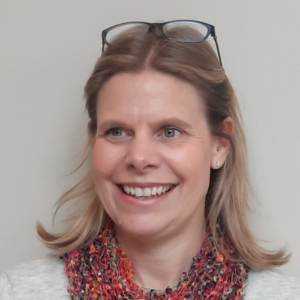
This month, we have interviewed Catherine Watkins, a case manager who recently joined the team and has been able to utilise her previous experience as a music therapist when supporting her clients.
Can you tell us about your previous roles?
I began my career as a project manager working within the pharmaceutical industry. I worked on several projects, including leading a large multi-national stroke prevention trial.
I returned to my passion as a musician and trained as a music therapist, registered with the HCPC as a Neurologic Music Therapy Fellow, working specifically with clients with brain injury and neuro-disability for over ten years.
One area I specialised in as a music therapist was working with disorders of consciousness, where low arousal, awareness and inconsistent responses present many challenges. – This is a very sensitive type of work, using music and sound to assess and help realise the potential in these clients alongside the multi-disciplinary team and families.
Can you tell us why you decided to work for AKA Case Management?
I started working at AKA Case Management as a case manager in January 2023, and I am very fortunate to have Jo Sims as my mentor, as she is a very experienced case manager.
I had previously worked on many case-managed teams as a therapist, including with AKA Case Management. I would often be brought in as part of the multi-disciplinary team to help clients who would benefit from music therapy. This sparked my interest in finding out more about case manager roles and how this might bring together my brain injury specialism and project management background.
I experienced a few barriers in my transition into case management, reflecting the lack of understanding of music therapy as a profession, and I wasn’t sure if this was possible. However, Andrew Rose, Director of AKA Case Management, encouraged me, as he explained that they were very open to having therapists and clinicians from different backgrounds and would offer the support and training needed.
Since joining, I have been fully supported with training and a mentor, which has been brilliant. The organisation embraces innovation and diversity, which has helped me in my role and adds value to our clients.
Tell us about your role as a case manager
I am based in the Midlands and have clients across the West and East Midlands. I work from home, which works well for me, and I go into the office if I need to for team meetings and out to meet clients in their own homes.
My role is to work with our clients, enabling them to achieve everything they want. I support them so they can achieve the best life regardless of what happened to them.
I work with adults and children with a wide range of disabilities, many of whom have hidden disabilities as well as more visible physical or communication difficulties, which can make the work more complex. When a person has cognitive difficulties, it can make it difficult for them to fully understand the extent of their disabilities. In addition, the disabilities are not visible to others, leading to assumptions and challenges in the community or with friends and family. My clients include children with birth injuries as well as children and adults who may have had an acquired brain injury following a road traffic accident or a fall.
As a case manager, I assess what a client needs and assemble a team that will best support the client. I remain registered as a music therapist and feel that I can bring this innovative and creative mindset to working with clients.
My knowledge and expertise as a music therapist have helped the other case managers. I can discuss the benefits of music therapy with them so they can engage music or other arts-based therapists for their clients if it will help them.
With brain injury clients, you need to be innovative to motivate and engage them, and music therapy is an excellent starting point to achieve both functional and psychological outcomes.
How do you support your continuous development?
I am a member of the team organising the West Midlands Acquired Brain Injury Forum; this is part of the United Kingdom Acquired Brain Injury Forum. We meet a few times a year, which allows me to keep up to date with developments in the sector. I also value the opportunity to meet other clinicians and professionals who work in brain injury across the NHS and private sectors and continue to build a strong network.
I’m a member of the Case Management Society UK. This is for case management professionals; they organise events and seminars to help with our careers and personal development.
I am also still a member of the British Association of Music Therapy and a Fellow of The Academy of Neurological Music Therapy.
What do you do in your spare time?
I have a lovely dog called Molly and two teenagers that keep me busy. I am sure that having a dog is part of the criteria of being part of the company, as so many of us have them. Working from home is perfect as it allows me the flexibility to take Molly out for walks and gives me time outdoors, a great way to relax at the end of the day.
Music is still a huge passion for me, particularly singing in choirs as well as in the shower! I am also a member of the local running club and have a few challenges planned for the year ahead.